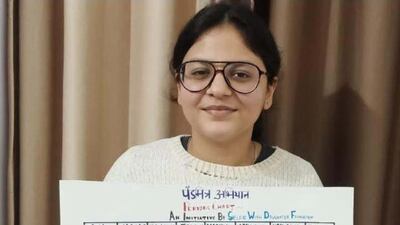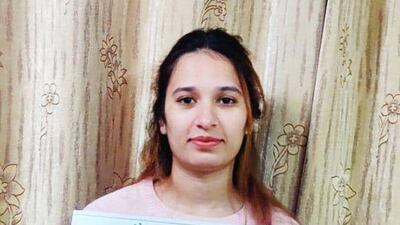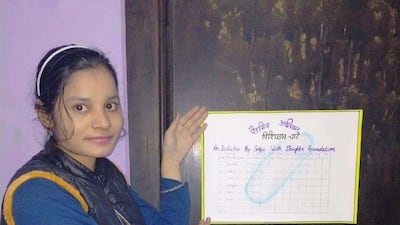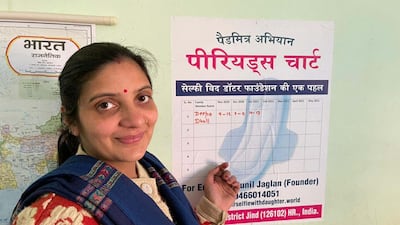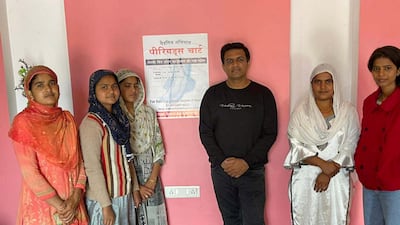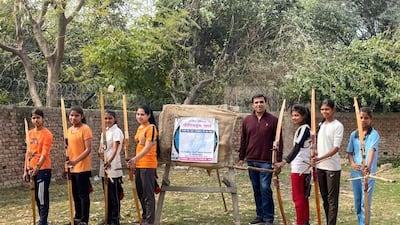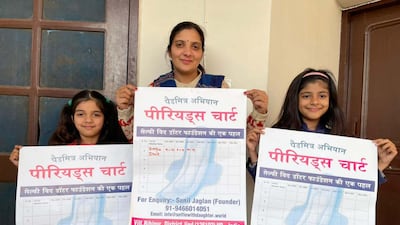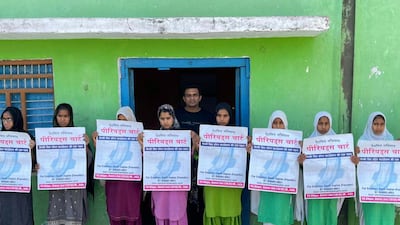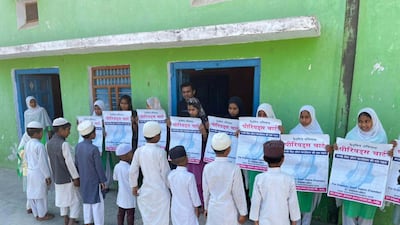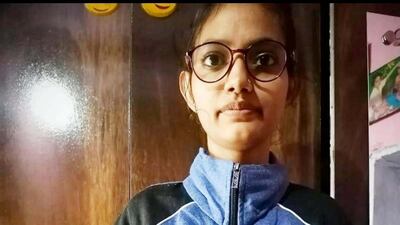Even simply uttering the words “period” or “menstruation” evoked shame and disgust at Pooja’s home during the years she transformed from a girl into a woman.
The 19-year-old from a family in the Nuh district of Haryana state – one of India's most conservative regions – was told by her mother for years that the monthly biological process was a "clandestine" affair andany mention of it was forbidden.
But last December she challenged the age-old precept by conspicuously hanging a “period chart” in the living room, initially stunning her 11-member joint family but eventually opening a conversation on the subject at her home.
"I felt liberated. Periods are natural and I feel happy that I have dared to talk about it with my brothers. Why shame? They now understand my period problems," Pooja told The National.
The law student was inspired by dozens of defiant women of Nuh – an hour's drive from Delhi – who are challenging the taboo around the subject by putting up their flow charts at home and talking about menstrual health and hygiene.
India has some 350 million women of menstruating age, but periods or reproductive health issues still remain a hush-hush matter for most women in the largely patriarchal and conservative country.
Around puberty, girls are taught to keep the biological process a secret, buying sanitary napkins covertly from neighbourhood shopkeepers while silently braving menstrual cramps and other health complications at home.
India’s National Family Health Survey in 2016 found that just 35 per cent of menstruating women were using sanitary napkins in the country while the rest relied on old rags, husks and even dry leaves, putting them at risk of life-threatening infections.
A separate study by the charity Niine Foundation found that 71 per cent of adolescent girls had no or minimal knowledge of the menstruation process at the time of puberty.
Periods have fuelled innumerable myths and discrimination in India. Menstruating women are often barred from kitchens under the belief that they are impure, and religious practice treats them as desecrators.
India’s Supreme Court is hearing challenges to its 2018 ruling that allowed women of menstruating age to visit the Sabrimala temple in Kerala, which triggered violent protests in the southern state.
The discrimination puts millions of women at a disadvantage in real life.
According to a government study, a lack of menstrual hygiene supplies and toilets at educational institutions forced half a million girls to drop out of school after reaching puberty in 2019.
Last February, 60 girls at a hostel in western Gujarat state were asked to remove their undergarments to prove they were not on their periods after complaints that menstruating girls had entered the temple and kitchen on the premises.
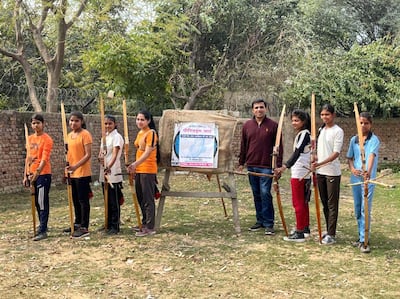
Sunil Jaglan, who helped promote "Period Chart" campaign in Nuh, said his objective was to encourage society to have open discussions about the important milestone in a woman’s life.
"Indians still frown upon the word period," Mr Jaglan told The National.
The former village head turned social activist from neighbouring Jind district said his aim was to help daughters and sisters talk to their fathers and brothers about the important biological aspect as the shroud of secrecy was affecting their status in the society.
Mr Jaglan, 37, a father of two daughters, is known for his campaigns to raise awareness about the girl child in a state that has high levels of female foeticide and a skewed sex ratio of 922 females to 1,000 males. His Selfie with Daughters Foundation launched a campaign in 2015 that was acknowledged by Prime Minister Narendra Modi.
He said he wanted to sensitise both women and men about period-related health issues, but it was not easy to discuss the “ladies’ problem”.
Mr Jaglan said he first understood the nitty-gritties of menstruation from his wife Deepa Dhull, 32. He then created a WhatsApp group with the women volunteers of his foundation and helped prepare and circulate a "period chart" for women to record the dates and duration of each menstrual cycle, their period flow and other menstrual-related health issues.
“The drive will not only help women but also sensitise the next generation of men in the family to look at periods naturally and not as a stigma,” Mr Jaglan said.
So far, 167 women between the ages of 15 and 40 have put up the charts in their homes. Some faced resistance from their families.
"When I first told them about the period chart they were shocked, but I made them understand that it is important for my health," nursing student Rizwana Khan, 19, told The National.
For Gulfasha Ali Khan, 25, the initiative has helped the women in her family to take menstrual health seriously.
“I have introduced it to my sisters-in-law and we discuss our period flow, irregular dates and cramps openly with our husbands. No one had taught us the importance of a healthy menstrual cycle and the dangers of irregular flow. But now we know when to see a doctor,” Ms Khan said.
